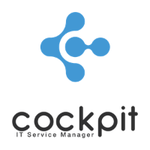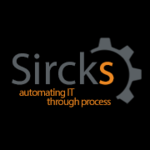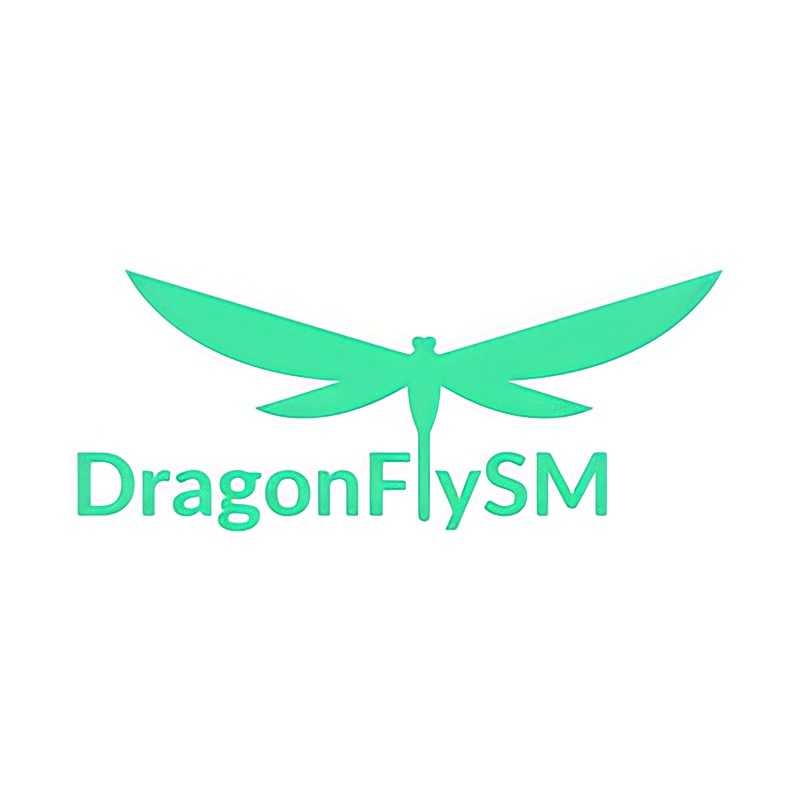Description

Cherwell

Jira Software
Comprehensive Overview: Cherwell vs Jira Software
Cherwell and Jira Software are both popular tools in the enterprise and IT service management spaces, each catering to different needs and user bases. Here's a detailed overview of these two products:
Cherwell
a) Primary Functions and Target Markets
- Primary Functions: Cherwell is primarily known as an IT Service Management (ITSM) tool. It provides a platform for IT service desk solutions, asset management, and change management. Key features include workflow automation, incident and problem management, configuration management, and self-service portals.
- Target Markets: Cherwell targets medium to large enterprises that require comprehensive IT service management solutions. It is often used by organizations with complex IT infrastructures that need flexible, customizable IT processes.
b) Market Share and User Base
- While specific market share statistics can vary, Cherwell has maintained a strong presence in the ITSM market segment. It has been recognized by industry analysts and is often included in ITSM software evaluations and magic quadrants.
- Cherwell's user base primarily consists of IT professionals and departments within large organizations that value its robust and customizable platform.
c) Key Differentiating Factors
- Customization and Flexibility: Cherwell is known for its high level of customization, allowing users to tailor processes and workflows without heavy coding. Its codeless configuration helps businesses adapt the software to their specific needs.
- ITIL Alignment: Cherwell is highly aligned with ITIL (Information Technology Infrastructure Library) practices, making it an attractive choice for organizations following these guidelines.
- Focus on ITSM: Unlike Jira, which has a broader focus, Cherwell is specifically designed for IT service management, with features dedicated to that purpose.
Jira Software
a) Primary Functions and Target Markets
- Primary Functions: Jira Software, developed by Atlassian, is a widely used tool for agile project management and issue tracking. It's designed to support agile methodologies such as Scrum and Kanban, with features like sprint planning, backlog prioritization, and burndown charts.
- Target Markets: Jira is used by software development teams of all sizes, from small startups to large enterprises. Its flexibility allows it to be adapted for other types of project management beyond software development.
b) Market Share and User Base
- Jira Software has a significant market share in the agile project management space. It is one of the most popular tools for agile teams, with millions of users worldwide and a broad adoption among tech and development teams.
- Its user base is diverse, extending beyond traditional IT departments to include marketing, operations, and other business units that benefit from its project management capabilities.
c) Key Differentiating Factors
- Agile and Development Focus: Jira is designed with agile software development in mind, making it ideal for teams adopting Scrum, Kanban, or other agile methodologies.
- Integrations and Ecosystem: Jira offers robust integration capabilities with other Atlassian tools (like Confluence, Bitbucket) and third-party applications through its extensive marketplace, supporting a variety of use cases.
- User-Friendly for Development Teams: Its interface and features are optimized for developers and agile teams, with tools specific to coding, issue tracking, and continuous integration.
Comparative Analysis
-
Cherwell vs. Jira in ITSM and Agile: Cherwell is more specialized in ITSM, while Jira focuses on agile project management. Organizations looking for a dedicated ITSM solution might prefer Cherwell, whereas development teams looking for agile project management will likely favor Jira.
-
Customization vs. Ecosystem: Cherwell's strength lies in its customizable workflows and ITIL alignment, which can appeal to organizations requiring tailored IT service solutions. In contrast, Jira offers a powerful ecosystem and out-of-the-box agile features that integrate seamlessly with software development processes.
-
Market Positioning: While Cherwell primarily competes with other ITSM tools like ServiceNow and BMC Remedy, Jira squares off against other project management and agile tools like Trello (also Atlassian), Asana, and Microsoft Azure DevOps.
Understanding these distinctions helps businesses choose the right tool based on their organizational needs, whether they require comprehensive IT service management or agile project management capabilities.
Contact Info

Year founded :
Not Available
Not Available
Not Available
Not Available
Not Available

Year founded :
Not Available
Not Available
Not Available
Not Available
Not Available
Feature Similarity Breakdown: Cherwell, Jira Software
Sure, let’s break down the feature similarities and differences between Cherwell and Jira Software.
a) Core Features in Common
Both Cherwell and Jira Software offer several core features that are common in project management and IT service management solutions. These include:
-
Workflow Automation: Both platforms offer automation capabilities to streamline processes, reduce manual work, and enhance productivity.
-
Issue Tracking: They allow users to track issues, bugs, or tickets from inception to resolution. Both systems are designed to manage and monitor the lifecycle of tasks, whether IT incidents or software bugs.
-
Customizable Dashboards: Both tools provide customizable dashboards for visualizing and managing data in a way that suits user needs, enabling better insight into project metrics and performance.
-
Reporting and Analytics: Both offer robust reporting and analytics features to help users understand project status, team performance, and system efficiency.
-
Integration Capabilities: Each platform supports integration with various third-party tools to extend functionality and fit into existing business processes.
-
Collaboration Tools: Both support team collaboration with features like commenting, mentioning, and sharing tasks, which help facilitate communication among team members.
b) Comparison of User Interfaces
-
Cherwell: Cherwell's user interface is geared primarily towards IT service management. It has a more traditional ITSM layout, which can sometimes feel complex for non-technical users. However, its interface is highly configurable, allowing users to tailor views to specific roles or departments.
-
Jira Software: Jira is designed with software development teams in mind, and its user interface reflects this focus. It offers a cleaner, more intuitive design that emphasizes agile methodologies, such as Scrum and Kanban boards. Jira’s UI is often considered more user-friendly and easier for new users to navigate, especially those familiar with agile project management.
c) Unique Features
-
Cherwell:
- Self-Service Portal: Cherwell provides a robust self-service portal aimed at improving customer service and reducing the workload on IT staff. This portal is highly configurable and supports end-user empowerment by allowing them to find solutions and submit requests independently.
- ITIL® Alignment: Cherwell is highly aligned with ITIL best practices, which makes it a strong candidate for enterprises looking for solutions tailored to IT service management.
-
Jira Software:
- Agile Development Tools: Jira provides extensive agile development tools that support Scrum, Kanban, and other methodologies, making it especially appealing to software development teams. Features like backlog prioritization, sprint planning, and active sprint boards are particularly useful.
- Marketplace Apps: Jira has an extensive marketplace for add-ons and plug-ins, which allows teams to extend the functionality of Jira to meet very specific needs. This marketplace is far larger than what Cherwell offers.
In conclusion, while Cherwell and Jira Software share core features as comprehensive management solutions, their focus areas, interface designs, and unique features cater to different user needs. Cherwell is more focused on IT service management with features that align closely with ITIL®, whereas Jira is deeply rooted in agile project management for software development teams.
Features

Automation
Reporting and Analytics
Service Management
Customization
User Management
IT Service Management
Business Process Management
Self-Service Solutions

Project Management
Reporting and Analytics
Agile Development
Collaboration Tools
Best Fit Use Cases: Cherwell, Jira Software
To address the use cases and suitability of Cherwell and Jira Software, it's important to understand their core functionalities and strengths:
Cherwell
a) Best Fit for Businesses or Projects:
- IT Service Management (ITSM): Cherwell is primarily known for its robust IT Service Management capabilities. It is ideal for businesses that need a comprehensive ITSM solution to manage their IT services and support.
- Enterprise Organizations: Large enterprises with complex IT environments benefit the most from Cherwell, as it offers extensive customization options and is capable of handling intricate workflows and processes.
- Organizations Seeking Custom Workflow Automation: Cherwell’s flexibility in designing custom workflows and processes makes it a great choice for companies that need tailor-made service management solutions beyond the standard ITSM offerings.
d) Industry Verticals and Company Sizes:
- Industries: Cherwell is widely used in sectors like healthcare, education, government, and financial services, due to its strong compliance and customization features.
- Company Size: It is best suited for medium to large enterprises that require robust IT service management solutions with the ability to scale and customize according to specific organizational requirements.
Jira Software
b) Preferred Scenarios:
- Agile Project Management: Jira Software is renowned for its agile project management capabilities. It is the preferred choice for teams and organizations that follow Agile methodologies like Scrum or Kanban.
- Software Development Teams: Jira is heavily used by software development teams for bug tracking, project management, and issue tracking due to its powerful integrations with development tools and its ability to manage sprints, backlogs, and releases.
- Cross-Functional Responsibilities: Ideal for organizations where project management spans across departments — marketing, design, operations, and more — due to its flexible workflows and customization capabilities.
d) Industry Verticals and Company Sizes:
- Industries: While Jira Software is prominently used in technology and software development sectors, it is also applicable to other industries like marketing, finance, and manufacturing where agile project management is a focus.
- Company Size: Jira is versatile for small to large companies. While it can support start-ups and small businesses due to its scalability and cost-effective entry tier, it is equally capable of supporting complex, large-scale environments through its robust enterprise-grade Jira Data Center option.
Overall, the choice between Cherwell and Jira Software often depends on the primary business needs — whether an organization requires a tool focused more on IT service management and customization (Cherwell) or a tool built around agile project management and software development (Jira Software). Both tools cater to different industry verticals and company sizes, providing flexibility within their respective strengths.
Pricing

Pricing Not Available

Pricing Not Available
Metrics History
Metrics History
Comparing undefined across companies
Conclusion & Final Verdict: Cherwell vs Jira Software
When evaluating Cherwell and Jira Software, organizations must consider various factors, including functionality, ease of use, customization capabilities, integration options, pricing, and specific business needs. Below is a structured conclusion and final verdict on which product offers the best overall value, their respective pros and cons, and recommendations for potential users deciding between the two.
Conclusion and Final Verdict
a) Which product offers the best overall value?
Jira Software generally offers the best overall value for organizations, especially those focused on software development and agile project management. Its features, integrations, and pricing are well-aligned with the needs of teams practicing agile methodologies and those who require robust software development tracking and planning tools. However, for enterprises that require extensive IT service management capabilities beyond software development, Cherwell may offer more tailored solutions.
b) Pros and Cons of Choosing Each Product
Jira Software:
Pros:
- Strong Agile and DevOps Support: Jira is designed with agile methodologies in mind, offering Scrum and Kanban boards, backlog management, and sprint planning tools.
- Integration Ecosystem: It integrates seamlessly with various Atlassian tools like Confluence, Bitbucket, and thousands of third-party applications.
- Customizability: Users can create custom workflows, fields, and issue types tailored to specific project needs.
- User Community and Support: A large user community and extensive resources provide robust support and best practice sharing.
Cons:
- Learning Curve: It may have a steeper learning curve for new users, especially those not familiar with agile practices.
- Configuration Complexity: While highly customizable, the configuration can be complex and time-consuming.
- Cost: The cost can escalate with the need for additional plugins and more extensive customization beyond what the standard packages offer.
Cherwell:
Pros:
- ITSM Capabilities: Strong focus on IT service management with functionalities like incident, problem, change, and asset management.
- No-Code Customization: Cherwell's codeless design makes it easier for users to create workflows and automations without deep technical expertise.
- Flexible Licensing: Offers various licensing models which can be appealing for different enterprise needs.
Cons:
- Niche Focus: Primarily designed for ITSM, which might not be suitable for teams focusing solely on software development.
- Integration Limitations: While integrations are available, the ecosystem is less extensive compared to Jira.
- User Interface: Some users may find the user interface less intuitive compared to other modern platforms.
c) Recommendations for Users Deciding between Cherwell and Jira Software:
-
Assess Your Primary Needs: If your primary focus is on software development and agile project management, Jira Software is likely the better choice due to its specialized features and integrations designed for these processes. If IT service management and operations are your primary concerns, Cherwell may align more closely with your organization's needs.
-
Consider the Scale and Complexity of Usage: For organizations expecting to scale their processes with extensive customization and integration needs, Jira Software provides a broad range of possibilities. Cherwell might be favorable for companies focusing on optimizing ITSM without extensive technical configurations.
-
Evaluate Total Cost of Ownership: Investigate the long-term costs associated with both platforms, considering licensing, customization, training, and any additional plugins or integrations that might be necessary as your use cases evolve.
-
Explore Trials and Demos: Both vendors offer trial versions or demos. Taking advantage of these can provide hands-on experience to determine which interface and functionality align best with your team's workflow.
-
Engage with User Communities and Support Channels: Leverage existing user communities, forums, and support channels for insights and to anticipate what onboarding and ongoing use will entail with both platforms.
Deciding between Cherwell and Jira Software ultimately depends on specific organizational needs, with Jira often being more suitable for development-focused teams, and Cherwell for IT service management operations.
Add to compare
Add similar companies



